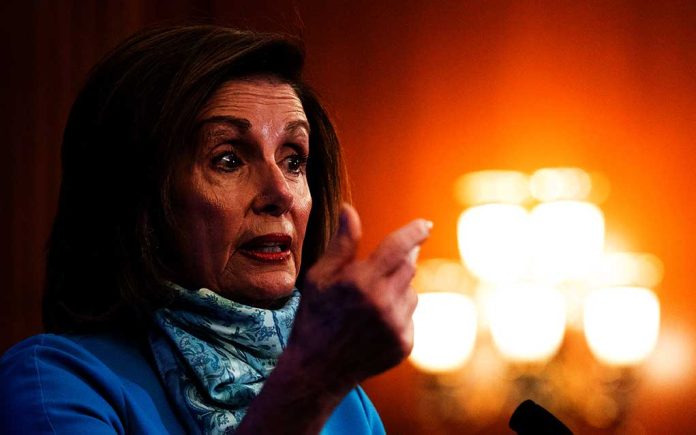
Nancy Pelosi’s leadership faces scrutiny as Democrats grapple with a $1 billion electoral setback and calls for change.
At a Glance
- Democrats faced significant electoral losses in Virginia and New Jersey
- GOP holds an 18-point advantage over Democrats on economic issues
- Inflation rose from 1.4% to 5.4% since Biden took office
- Pelosi’s influence reshapes Democratic landscape, including Biden’s re-election decision
- Calls for new leadership grow amid party discord and electoral setbacks
Economic Challenges and Democratic Setbacks
The Democratic Party finds itself at a crossroads, facing significant electoral losses and economic challenges that have eroded public confidence. Despite a strong jobs report showing the addition of over half a million jobs in October and unemployment dropping to 4.6%, the party’s electoral fortunes have taken a hit. Notably, Democrats faced setbacks in Virginia and New Jersey, influenced largely by economic concerns.
The economic landscape presents a mixed picture. While job gains, particularly in restaurants and bars, offer a glimmer of hope, other indicators paint a more complex scenario. GDP growth fell from 6.7% to 2% between the second and third quarters, and inflation has become a significant concern for voters.
President Biden’s approval rating on economic handling has dropped, with the GOP now holding an 18-point advantage over Democrats on economic issues. Inflation has risen from 1.4% to 5.4% since Biden took office, with gas prices increasing by 40%. Supply-chain disruptions are contributing to this inflationary pressure, with uncertain resolution timing.
Pelosi’s Influence and Party Dynamics
At the center of this political maelstrom is Nancy Pelosi, whose leadership and influence have been both a source of strength and controversy for the Democratic Party. Pelosi’s impact on U.S. politics is undeniable, with the ability to shape careers and influence major decisions, including those of presidents.
Pelosi played a significant role in reshaping the Democratic race for the White House, influencing Joe Biden’s decision not to seek re-election. Her endorsement of Kamala Harris helped unify the Democratic party and avoid internal conflict. However, this level of influence has also led to criticism and calls for new leadership within the party.
Calls for Change and Future Outlook
As the Democratic Party grapples with its recent electoral losses and internal divisions, voices calling for change are growing louder. Critics argue that Pelosi’s leadership style, while effective in many ways, may be hindering unity and progress within the party. The ongoing debate emphasizes the need for a transition to new leadership that can mend internal splits and strengthen the party’s political standing.
Pelosi’s new book, “The Art of Power,” reflects on her role and legacy, emphasizing her focus on preserving Biden’s legacy. However, as the party looks to the future, the question remains whether her style of leadership is what the Democrats need to overcome their current challenges and regain their electoral footing.
As the Democratic Party navigates these turbulent waters, the debate over leadership and strategy continues. The path forward will require addressing economic concerns, unifying the party, and potentially embracing new leadership to revitalize the Democratic brand and reconnect with voters across the nation.
Sources:
Nancy Pelosi is finished — no one deserves more blame for Dems’ $1B electoral collapse
A Strong Jobs Report Gives Biden and the Democrats a Reason to Hope
Nancy Pelosi continues to exercise ultimate power over Democrats







